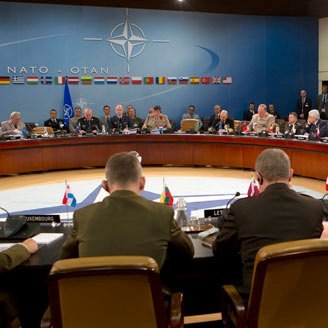(Carnegie Europe) With Asia rising and the West still confronting crises, power is diffusing and the world is becoming ever more complex. This shifting landscape presents decisionmakers across the globe with increased uncertainty. Meanwhile, the need for financial austerity confronts governments with the dilemma of providing for their countries’ security without overspending. Amid enduring expectations that living conditions will continue to improve and social welfare will increase, a government’s ability to wisely economize security expenditure is becoming key to its success and popular support. For some states, smarter defense spending in the face of mounting security challenges may even turn out to be necessary to survive.
One way to reasonably scale down defense and security budgets is to form a security community. A security community is a group of states that refrain from counterbalancing—that is, trying to weaken—one another unless there is a clear and contingent reason to do so. Participation in such a community allows countries to economize the resources that would otherwise be spent on hedging against the risk of mutually hostile policies. Members of a security community agree to derive no long-term benefit from diminishing the power of other members and are able to give each other credible reassurances to that effect.
The most successful security community to date is that of the Euro-Atlantic area, which includes Western and Central Europe and North America. This project holds out the promise of effective cooperative responses to the guns-or-butter dilemma for both current and prospective members, including many nations across post-Soviet Eurasia—perhaps even Russia itself. […]
See the article | © Carnegie Europe









